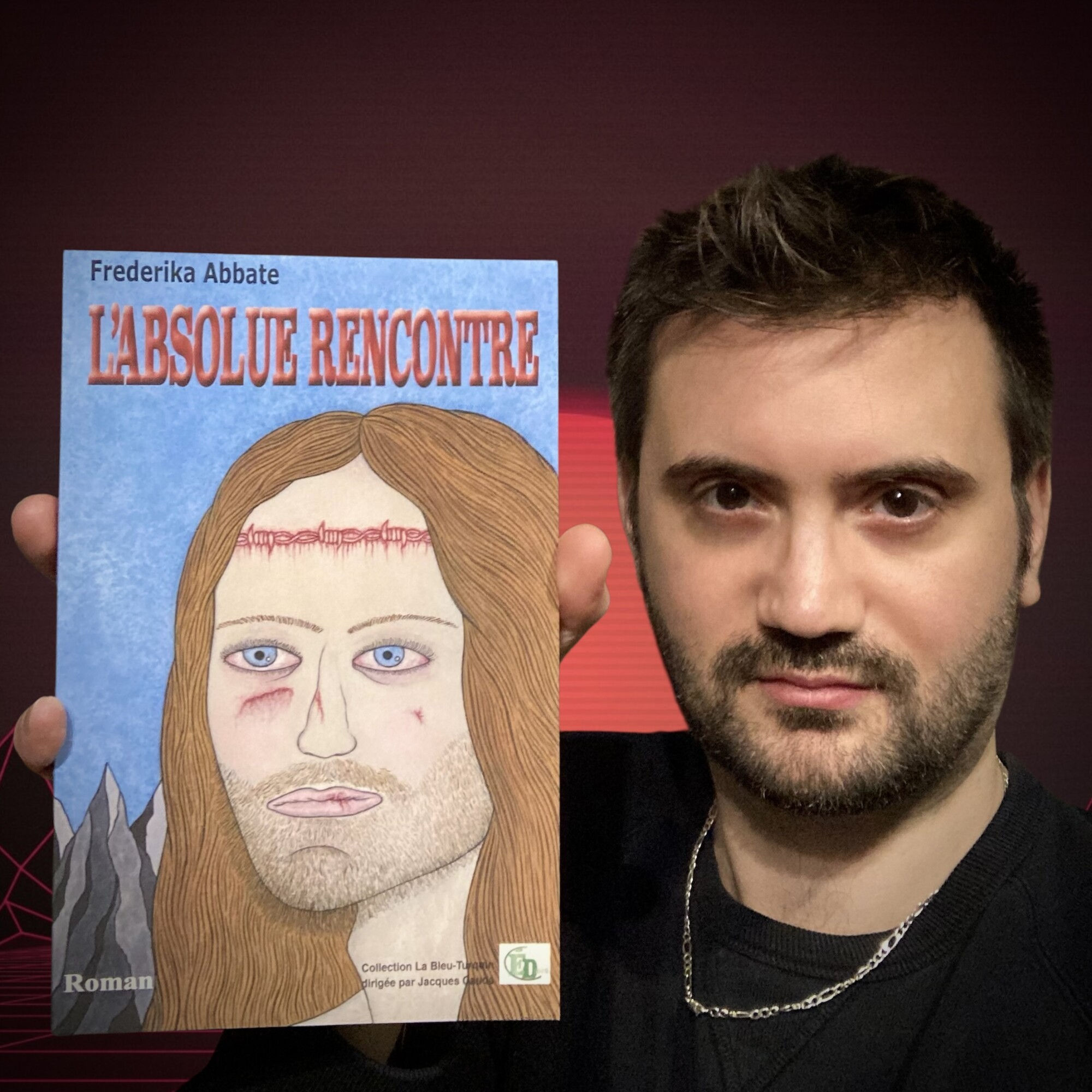On the novel The Absolute Encounter by Frederika Abbate
Having painted the cover image of the great Christian novel of our time is, for me, an achievement, a return to the intimate sources of faith, and an unspeakable pride. This is the very first time I have depicted, in a painting, the mysterious face of Christ. The emotion that gripped me during this act is indescribable and incommunicable—just like the feeling of divine presence.
The Absolute Encounter by Frederika Abbate tells, through a plurality of voices and interior monologues of witnesses, the coming of the Son of God into our world among men, and the fulfillment of his message through the sacred fusion of spirit and flesh.
Jesùs experiences a carnal passion with a simple young girl, Magdeleine, who devotes herself to him. She becomes the one through whom the new covenant takes form and comes into being. According to the words of Jesùs, she will be the apostle of passages.
I spoke of a Christian book—but of a primitive Christianity, imbued with paganism, rooted in nature and the cosmos. This is not the work of a Catholic writer like Bloy, Bataille, or Bernanos. We are closer to the cosmogony of Colette or Ezra Pound, even James Joyce, than to the endless theological ponderings of Barbey or Klossowski.
In this sense, we find ourselves in the beating and ancient heart of spiritual Europe—of springs, mountains, deserted coves, and forests.
It is a Christianity without Church or dogma—not of the letter but of the spirit—that finds its way into the hearts of ordinary people through the truth of its message. For Jesus is not especially the prophet of the poor, as is so often said, nor of the oppressed or the wretched, but simply the companion of everyday people.
It is the common folk, the decent people, the humble, the unpretentious and tireless workers, who gather to hear him, to see him, to touch him when he comes to meet them. There is Magdeleine, a childcare worker, a simple young woman full of common sense, whose only passion in life is to care for newborns.
We are not dealing with a “new Jesus,” but with Jesus himself, as he truly is. He does not bring a “new message,” but rather sheds light on and transmits the one that, from all eternity, reveals the intrinsic truth of each being.
As in the Gospels, he prescribes nothing, chants no prayers, does not address the crowd, bears no political message. He speaks only through images and parables, and reaches out to his followers in the unique way suited to each of them. He speaks only to individuals and to their intimate truth, and his encounter with them unveils the secret, singular mission designated to them by God.
In fulfilling the Law, he undoes all laws—and thus, he can perform miracles. Foremost among these miracles is that he abolishes the separation between soul and body.
With Jesus, there is no predestination, no heaven or hell, no commandments or prohibitions. Anyone can be saved and can strive to become free. The destiny of mankind is no longer predetermined. There is no longer the Law of the Father, nor even the Name-of-the-Father. We are no longer merely sons and daughters of our families, as in the Old Covenant. Fathers no longer have the right of life and death over their children, as they did before Christianity.
No more tribalism, no more scapegoats. No more inherited privileges or burdens. No more social or familial determinism. He abolishes the law of the group and collective guilt, to restore the sacred at the level of the person.
Thus, the child of the Devil—since evil, too, exists in potential—can also be a child of God, and become a unique being, as all human beings are.
Everything can be overturned, including the laws of the earth. For after the coming of Jesus—through whom God became man—divinity is no longer in the heavens, but within the human being on earth.
This is where Christianity is fully realized as the religion of incarnation: we have all become Gods.
If the Catholic Church disenchanted the world by severing the mystical bonds between nature and man, and locking the sacred away behind the altar, the return of Jesus restores to Man the foundation of his divinity.
And that is why The Absolute Encounter is, not through transgression but through pure and radiant devotion, a profoundly erotic book.
For if the God-Man becomes truly divine, it is by drawing from the flesh his share of humanity. Likewise, it is through making passionate love to a woman that God fully attains his divinity. And it is by embracing fully the Word of Jesus, who penetrates her with his speech, that Magdeleine becomes herself wholly human—that is, of divine essence.
Ultimately, it is when God becomes man that the human being is divinized.
And it is the intangible dignity of human life that appears in all its beauty.
Only on the foundation of life’s sacredness—a revolutionary principle—can a true ethics of the common be built: through real brotherhood among men in the love of God, fulfilled by Christ.
A true love of one’s neighbor, which can only be exercised near oneself, or within oneself.
That is the price of the return of Jesus, and the infinite reach of this book—whose cover I am extremely proud to have created.
A short and essential book, in which every sentence exalts sensuality, love, truth, and life.
Available to order in bookstores, on online platforms, or from the publisher’s website: https://www.editionsdouro.fr/boutique/LABSOLUE-RENCONTRE-p742134125

